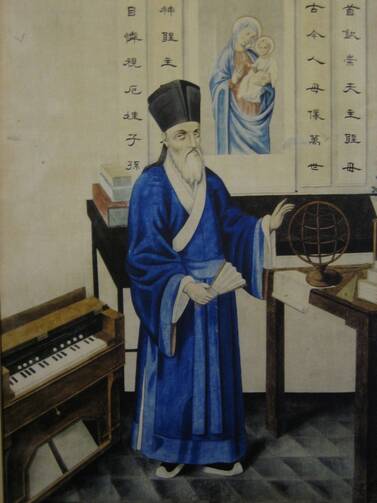In recognition of Catholic Schools Week, I thought I'd share a little bit of history from the schooling of Matteo Ricci, the great 16th century Italian Jesuit missionary.
When Ricci was about ten, his father enrolled him at the newly founded Macerata Jesuit College in central Italy. According to R. Po-Chia Hsia's A Jesuit in the Forbidden City, this is what Ricci studied there:
The first goal, acquiring knowledge of Latin and Greek, was achieved in a graduated program of Lower Studies beginning with the lowest grammar class and rising through the grades of middle and upper grammar, humanities to rhetoric. In Matteo's seven years at the Macerata Jesuit College, he spent the first years mastering Latin grammar and acquiring the rudiments of Greek syntax. As he graduated into the class of humanities, Matteo had spent two to three years reciting the letters of Cicero and some Roman poets, while learning Greek grammar. Then, a large dose of Latin--Cicero, Caesar, Sallust, Livy, Curtius for prosody, Virgil and Horace for poetry (with indecent verses expurgated of course), and more difficult Greek prose--prepared the student for the class of rhetoric. The intense exercise of memory, through oral declamations and written compositions, was upheld by the rule of Latin conversation among the pupils, except during breaks from the full academic routine, which saw classes in the mornings and afternoons, six days a week, except on feast days. For students in the class of rhetoric, memory became more important than ever, as they were expected to recite long passages of Cicero, as well as perfecting their knowledge of Greek by reading Demosthenes, Plato, Thucydides, Homer, Hesiod, and Pindar, in addition to the Chruch Fathers Gregory Nazianzen, Basil, and Chrysostom. But the heart of Greek learning was Aristotle...
And so it goes. It's astonishing, isn't it?








